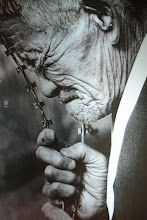Despite claiming death-defying loyalty to his city, Socrates' pursuit of virtue and his strict adherence to truth clashed with the current course of Athenian politics and society.[6] He praises Sparta, archrival to Athens, directly and indirectly in various dialogues. But perhaps the most historically accurate of Socrates' offenses to the city was his position as a social and moral critic. Rather than upholding a status quo and accepting the development of immorality within his region, Socrates worked to undermine the collective notion of "might makes right" so common to Greece during this period. Plato refers to Socrates as the "gadfly" of the state (as the gadfly stings the horse into action, so Socrates stung Athens), insofar as he irritated the establishment with considerations of justice and the pursuit of goodness. His attempts to improve the Athenian's sense of justice may have been the source of his execution.
According to Plato's Apology, Socrates' life as the "gadfly" of Athens began when his friend Chaerephon asked the oracle at Delphi if anyone was wiser than Socrates; the Oracle responded that none was wiser. Socrates believed that what the Oracle had said was a riddle, because he believed that he possessed no wisdom whatsoever. He proceeded to test the riddle through approaching men who were considered to be wise by the people of Athens, such as statesmen, poets, and artisans, in order to refute the pronouncement of the Oracle. But questioning them, Socrates came to the conclusion that while each man thought he knew a great deal and was very wise, they in fact knew very little and were not really wise at all. Socrates realized that the Oracle was correct in that while so-called wise men thought themselves wise and yet were not, he himself knew he was not wise at all which, paradoxically, made him the wiser one since he was the only person aware of his own ignorance. Socrates' paradoxical wisdom made the prominent Athenians he publicly questioned look foolish, turning them against him and leading to accusations of wrongdoing. Socrates defended his role as a gadfly until the end: at his trial, when Socrates was asked to propose his own punishment, he suggests a wage paid by the government and free dinners for the rest of his life instead, to finance the time he spends as Athens' benefactor.[7] He was nevertheless found guilty of corrupting the minds of the youth of Athens and sentenced to death by drinking a mixture containing poison hemlock.
Monday, 5 May 2008
Subscribe to:
Post Comments (Atom)




No comments:
Post a Comment